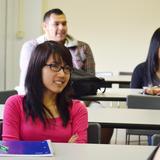- Located in a serene setting overlooking Longview Lake, Longview Community College is an artist's delight with its picturesque landscape surrounded in part by the white fencing that encircled the historic Longview Farm in its day.
School Highlights
Metropolitan Community College-Kansas City serves 17,273 students (39% of students are full-time).
The college's student:teacher ratio of 12:1 is lower than the state community college average of 16:1.
Minority enrollment is 43% of the student body (majority Black and Hispanic), which is more than the state average of 41%.
Quick Stats (2025)
- Enrollment: 17,273 students
- In-state tuition: $5,280
- Out-state tuition: $6,900
- Student:teacher ratio: 12:1
- Minority enrollment: 43%
- Source: Integrated Postsecondary Education Data System (IPEDS)
Top Rankings
Metropolitan Community College-Kansas City ranks among the top 20% of public schools in Missouri for:
Category
Attribute
Community Size
Debt For Students
School Overview
The teacher population of 1,488 teachers has stayed relatively flat over five years.
Metropolitan Community College-Kansas City
(MO) Community College Avg.
Carnegie Classification
Associate's Colleges: High Transfer-High Traditional
Baccalaureate Colleges: Diverse Fields
Institution Level
At least 2 but less than 4 years
At least 2 but less than 4 years
Institution Control
Public
Public
Total Faculty
1,488 staff
139 staff
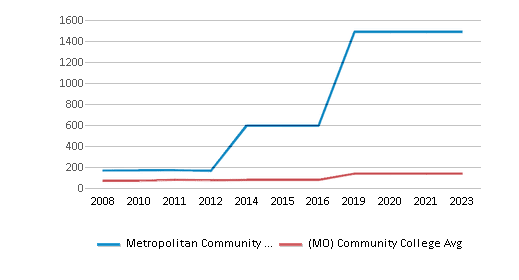
School Calendar
Student Body
The student population of Metropolitan Community College-Kansas City has grown by 9% over five years.
The student:teacher ratio of 12:1 has increased from 9:1 over five years.
The Metropolitan Community College-Kansas City diversity score of 0.62 is more than the state average of 0.61. The school's diversity has stayed relatively flat over five years.
Total Enrollment
17,273 students
1,159 students
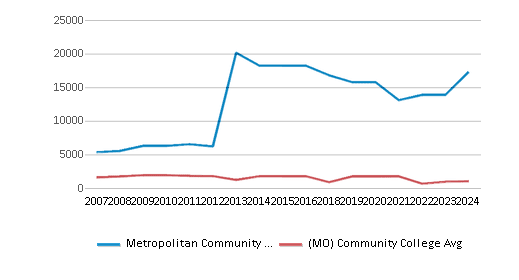
Student : Teacher Ratio
12:1
16:1
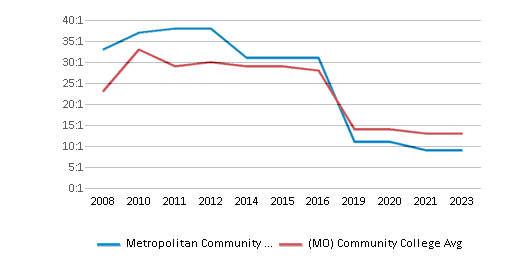
# Full-Time Students
6,788 students
718 students
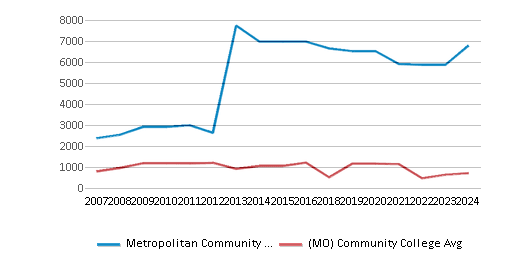
# Part-Time Students
10,485 students
1,407 students
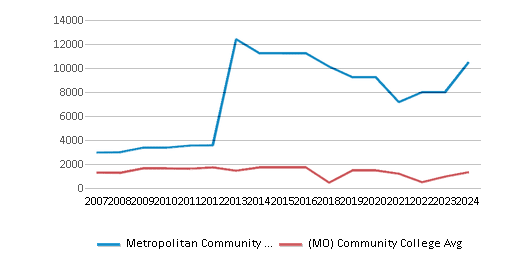
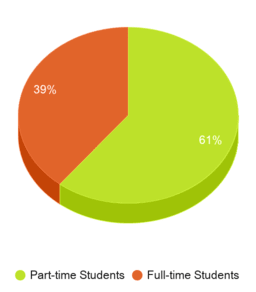
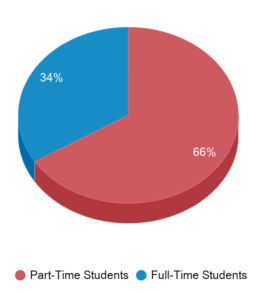
# Enrollment Undergraduate
172 students
246 students
# Full-Time Undergraduate Students
6,788 students
834 students
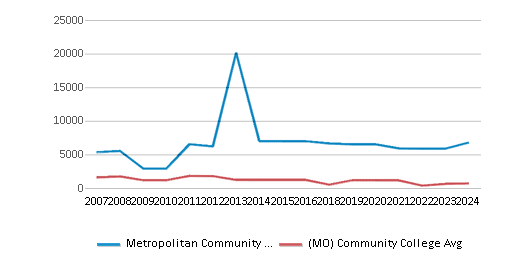
# Full-Time Graduate Students
n/a
11 students
# Part-Time Undergraduate Students
10,485 students
684 students
# Part-Time Graduate Students
n/a
9 students
Total Dormitory Capacity
n/a
200 students
% American Indian/Alaskan
n/a
n/a
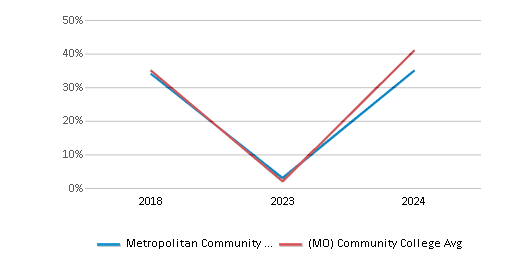
% Asian
3%
2%
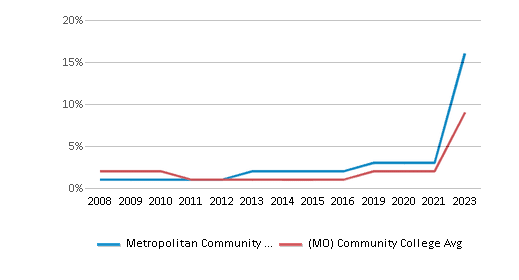
% Hispanic
14%
6%
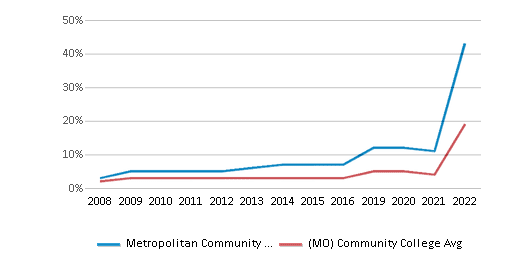
% Black
16%
10%
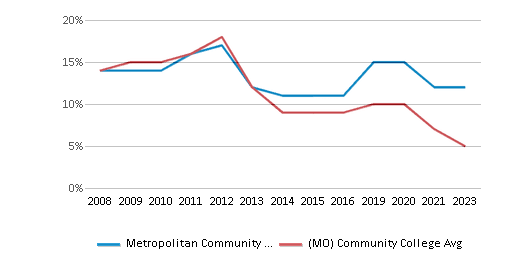
% White
57%
59%
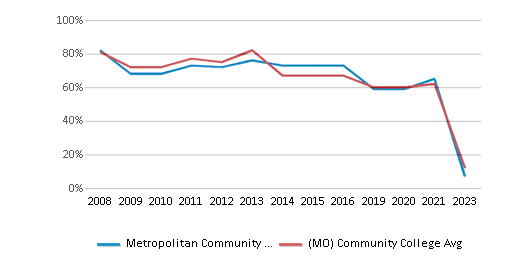
% Hawaiian
n/a
1%
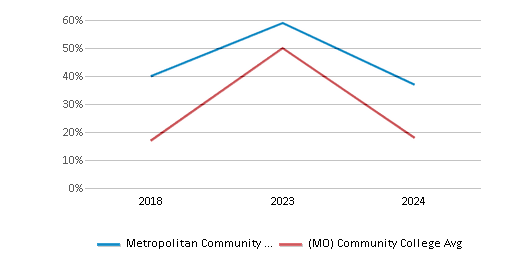
% Two or more races
7%
4%
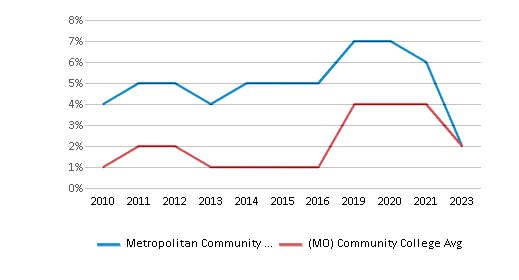
% Non Resident races
1%
1%
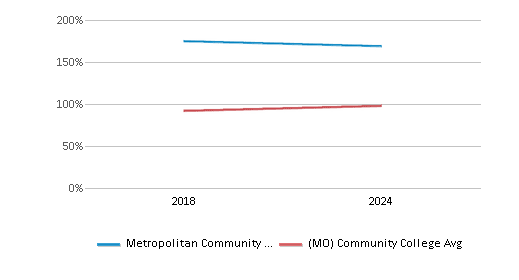
% Unknown races
3%
17%
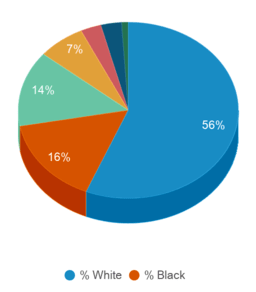
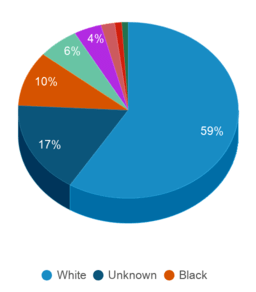
Diversity Score
0.62
0.61
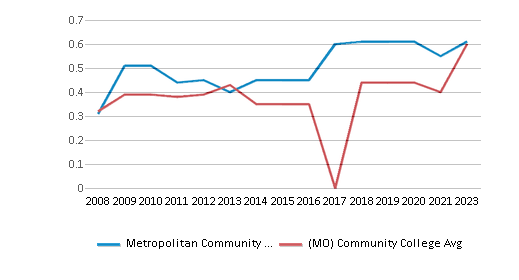
College Completion Rate (Students who graduate in less than 4 years)
0.2866%
0.433%
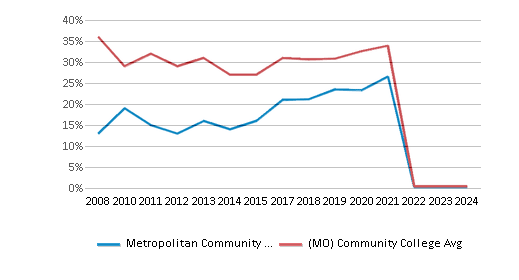
College Completion Rate (Students who graduate in 4 years or more than 4 years)
n/a
0.6154%
Average Graduate Earnings (10 Years)
$31,800
$30,900
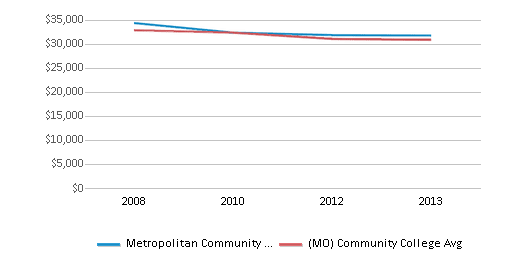
Tuition and Acceptance Rate
The public in-state tuition of $5,280 is more than the state average of $3,825. The in-state tuition has declined by 11% over four years.
The public out-state tuition of $6,900 is more than the state average of $5,579. The out-state tuition has declined by 10% over four years.
In-State Tuition Fees
$5,280
$3,825
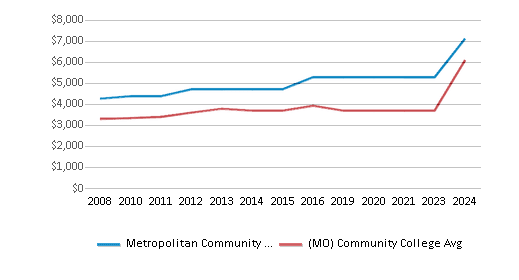
Out-State Tuition Fees
$6,900
$5,579
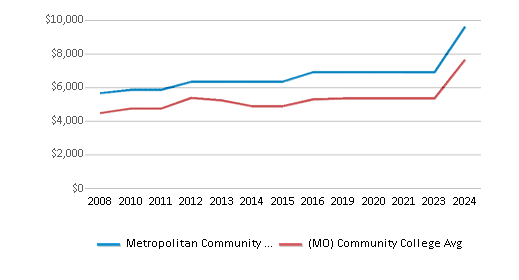
% Students Receiving Some Financial Aid
85%
91%
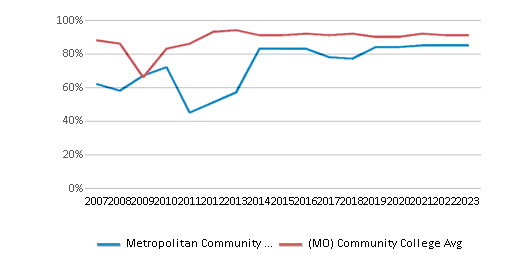
Median Debt for Graduates
$9,500
$10,500
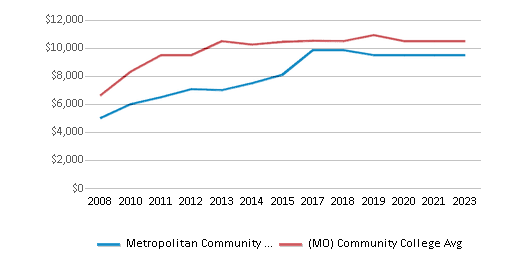
Median Debt for Dropouts
$5,500
$5,500
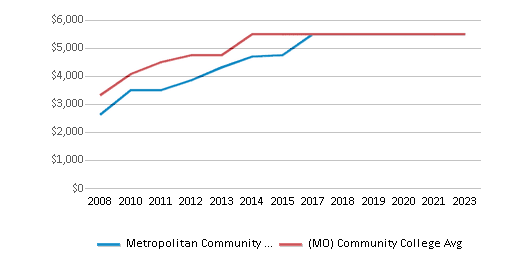
Acceptance Rate
n/a
94%
Source: 2024 (or latest year available) Integrated Postsecondary Education Data System (IPEDS)
School Notes
- The history of Longview Community College is closely connected to the R.A. Long family. Long was a pioneer lumber baron whose country home, the magnificent Longview Mansion, was the focal point of the Longview Farm. In 1968, Long's daughters donated a 146-acre tract of land, formerly part of the Longview Farm, to the District for the purpose of building a college. The District targeted 1969 as the opening date. Over the years, Longview has built a tradition of excellence with its premier Program for Adult College Education (PACE), a nationally-acclaimed Automotive Technology program, exceptional Engineering and Human Services programs, and Writing Across the Curriculum. The writing program garnered national recognition for the college in 2001 when Longview was honored as a TIME magazine/ The Princeton Review "College of the Year" (the first community college to receive the honor). In 2003, Longview was designated by the New Media Consortium as a New Media Center for its innovation in the use of technology for teaching and learning. As a comprehensive system, the colleges offer transfer programs and nearly 70 occupational programs ranging from automotive technology to veterinary technology. The student body is characteristic of community college enrollments; students and staff reflect the ethnicity of the diverse local population. In addition, Longview has gained recognition for its ABLE program, which serves students with learning disabilities and brain injuries; Phi Theta Kappa honor society; and an award-winning Forensics program. A strong Community Education program offers noncredit learning opportunities for children, adults, and special populations.
Frequently Asked Questions
How much does Metropolitan Community College-Kansas City cost?
Metropolitan Community College-Kansas City's tuition is approximately $5,280 for In-State students and $6,900 for Out-State students.
What is Metropolitan Community College-Kansas City's ranking?
Metropolitan Community College-Kansas City ranks among the top 20% of community college in Missouri for: Largest student body and Least debt for graduating students.
In what neighborhood is Metropolitan Community College-Kansas City located?
Metropolitan Community College-Kansas City is located in the Ridgefield neighborhood of Kansas City, MO. There are 1 other community '.college.' located in Ridgefield.
Recent Articles

Obtaining Your Bachelor's Degree at a Community College
Explore the evolving landscape of community colleges offering bachelor's degrees, addressing affordability, accessibility, and workforce needs.

A to Z of Community College Certificates and Courses
From business and healthcare to technology and skilled trades, the article showcases the breadth of options available to students seeking to enhance their knowledge, develop new skills, or pursue career advancement.

What is a Community College?
This comprehensive guide explains what a community college is, its history, and its role in higher education. It covers the types of programs offered, differences from four-year colleges, benefits of attending, and important considerations for prospective students, providing valuable insights for those exploring educational options.

